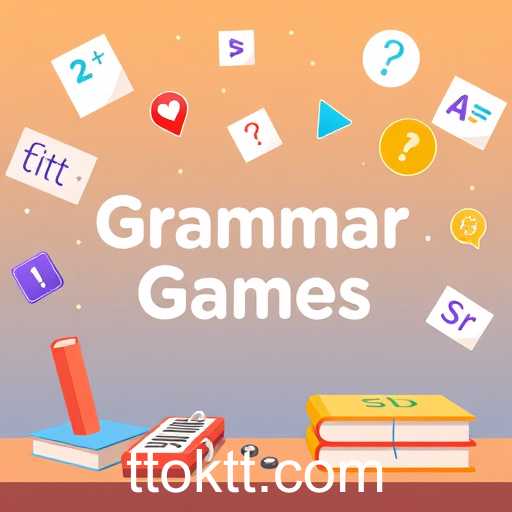In the digital age, education continues to transform, adapting to new technologies and the diverse needs of learners worldwide. One of the most innovative trends is the use of interactive learning platforms, where 'Grammar Games' have emerged as a popular category. Driven by the keyword 'oktt,' these games are designed to make learning grammar not only effective but also enjoyable.
Grammar Games leverage gamification to achieve educational objectives. By integrating game elements such as points, levels, and challenges, these platforms aim to increase engagement and motivation among learners of all ages. This approach addresses the monotonous nature of traditional grammar exercises, transforming them into captivating activities that encourage users to practice and improve their language skills.
The keyword 'oktt' plays a vital role in categorizing these games, facilitating user searches, and enhancing visibility on educational websites. It acts as a bridge connecting learners with a variety of resources tailored to different proficiency levels and learning styles. From beginner-friendly quizzes that focus on basic rules to more advanced challenges that test complex grammatical concepts, there is something for everyone.
One of the key benefits of Grammar Games is their adaptability. Learners can engage with activities that suit their pace, focusing on areas where they need improvement. Additionally, instant feedback provided by these games helps learners correct mistakes in real-time, reinforcing correct usage and helping to build confidence. Many platforms also offer progress tracking, allowing users to monitor their advancement and set new learning goals.
Furthermore, Grammar Games support collaborative learning. Multiplayer features and community forums promote interaction among users, encouraging peer-to-peer learning and the exchange of strategies and tips. This social aspect not only enhances the learning experience but also helps build a supportive community of learners.
Educational institutions are increasingly incorporating Grammar Games into their curriculums to complement traditional teaching methods. These tools offer teachers new ways to engage students, providing a dynamic classroom environment that can accommodate different learning preferences.
In conclusion, 'Grammar Games' represent a significant shift in language education. With the aid of the 'oktt' keyword, they provide accessible, engaging, and effective ways to master grammar. As the demand for innovative learning solutions grows, these games are poised to play a crucial role in shaping the future of language education, making it more interactive and user-friendly.








